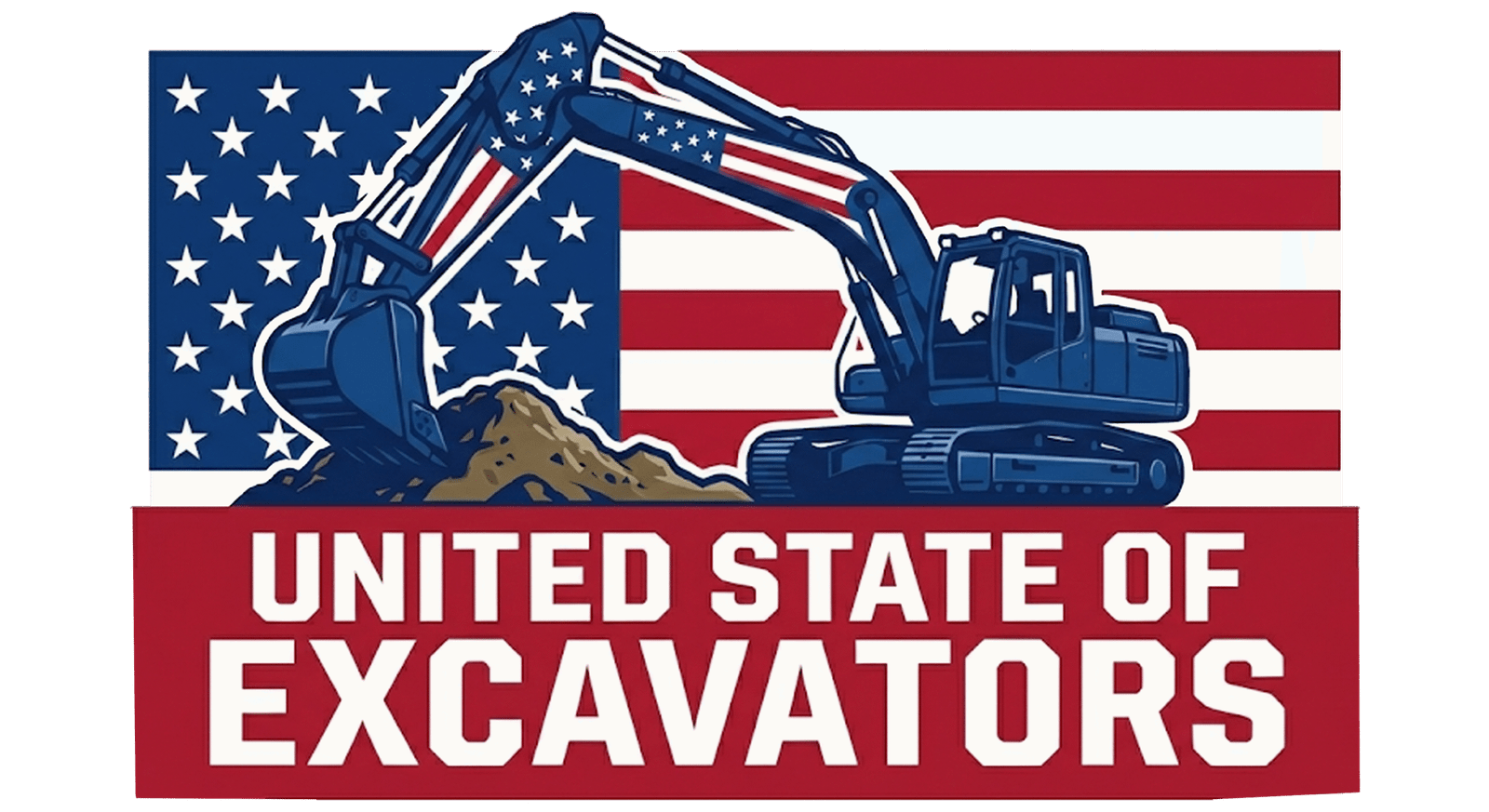Free Shipping Within USA | 1-year Warranty
Mini Excavator for Construction: Common Applications
Mini excavators or compact excavators have changed the construction and landscaping industry, essentially, with one versatile and efficient solution for a wide range of tasks.
These machines are distinguished by their small size, specifically their weight of 1 to 10 tons, which, in turn, permits them to perform in narrow areas where large equipment is not accessible or would be of no use.
The cut-down version does not relinquish in power; many mini excavators are installed with powerful hydraulic systems that allow them to do heavy works stress-free.
The trend of mini excavators has significantly risen, thanks to the machines’ ability to mix flexibility with effectiveness and, thus, make them the necessary tools for contractors, gardeners, and DIY fans.
Furthermore, the exploitation of mini-excavator goes on with the many attachments at hand, such as the bucket, augers, and the hydraulic breakers. In this manner, a worker can change the working mode promptly and so save much the working time getting more done in the same way.
Moreover, the significant technological leaps have, among other things, lead to more efficient engines and better hydraulic system which has resulted in lowered fuel consumption and emission reductions.
The mini excavators are quite visible as the green alternatives for different applications as the ecological concerns keep molding the construction industry.
Their small size and low environmental impact can be the particular advantages in projects for the inner city where space is scarce and strict regulations for noise exist.
Key Takeaways
- Mini excavators are machines with a wide range of capabilities that are used to do various jobs such as landscaping, digging, demolition, material handling, utility installation, and road repair.
- The use of mini excavators in landscaping and land development is very common, and the works such as grading, leveling, and clearing land for construction are included in the process.
- Mini excavators are perfect for digging and trenching that are done with the purpose of laying down utilities, drainage, or irrigation systems.
- Demolition, as well as site cleanup, can be made very effectively and safely through the use of mini excavators, which include the works of breaking up concrete and removing debris.
- Through the help of mini excavators, material handling and loading activities like moving and loading of heavy materials can be done without difficulty.
Landscaping and Site Preparation
Site Preparation and Cleanup
While planting trees or shrubs a site needs to be prepared, and in that case, mini excavators can easily remove topsoil and debris and thus making a clean slate for work. In addition, this capability of clearing the land in an efficient manner saves time and also assures the landscaping process a smooth beginning.
Versatility in Tight Spaces
The small dimension of mini excavators makes them able to go in very narrow spaces and thus they become suitable for small residential yards.
This characteristic allows landscapers to manage the site effectively and at the same time without causing any damage to the already existing structures or landscaping. Furthermore, these machines have several attachments that help them to get more done on the landscaping works.
Enhanced Functionality and Efficiency
The mini-excavator attachments that are available, such as the grading bucket and the landscape rake, have opened up a whole new range of possibilities for these machines.
It is easy to imagine how these tools may level off uneven ground, spread soil or mulch evenly, and besides, they may facilitate the installation of irrigation systems by cutting trenches for pipes and cables.
Thus, not only the process is sped up, but also the first rate of the result is assured to meet the wanted standards both in terms of aesthetics and functionality.
Digging and Trenching
Digging and trenching are just the most basic activities in construction and utility works, and in such works mini excavators always stand out just because they do these jobs with precision and are very efficient.
The compact size of these machines is what allows them to dig foundations or trenches for drainage systems in areas that big machines can not reach.
And as a result of this, a mini excavator is able to easily move through narrow streets and tight backyards when, for instance, a new sewer line is being installed in a residential neighborhood without causing much disruption to the surroundings. The hydraulic power of mini excavators makes it possible for them to dig very deep trenches in a very short time without losing their stability.
The driver is able to be very accurate in adjusting the depth of the excavation, thus, the pit is set at the required depth as per the local building codes and specifications.
Moreover, several mini-excavator models are equipped with features such as zero tail swing that, combined with other safety measures, allow them to operate even close to walls or other obstacles without any danger of causing damage. This, for example, is extremely advantageous in urban areas where there is not much space and careful moving is always a must.
Demolition and Site Cleanup

Demolition projects typically call for the use of heavy machinery that can efficiently break a structure while at the same time ensuring safety on the site.
Mini excavators are gaining popularity as the choice for small-scale demolition work because they are both powerful and versatile. When combined with hydraulic breakers or shears, these equipment can easily remove concrete walls, take off the asphalt surface, or tear down small buildings. Due to their small size, they can operate in cramped areas where large demolition machinery would be too big or difficult to handle.
Once the demolishing process has been carried out, then the site cleanup becomes the next and most crucial part of the job. A mini excavator is the perfect equipment for clearing the site of waste and stones in a very fast way, so the subsequent stage of building or decorating the site can come in without delay.
The workers equipped with such tools as grapples or buckets made for easily loading materials onto trucks for disposal or recycling can work effortlessly to accomplish the task.
Not only does this feature increase the rate of the clean-up operation but also it is beneficial in keeping the site a safe working environment since the risk factor is lowered by the absence of leftover materials.
Material Handling and Loading
Mini-excavators have their advantage in the material handling sector as well, where they are most efficient and versatile. These machines in construction sites are usually tasked with the loading of materials such as gravel, sand, or soil into trucks or onto conveyor belts.
A huge benefit for operators is that they can easily shift from one type of handling tool to another, such as ones used for scooping and lifting. The versatility of the operator can’t go unmentioned.
For example, during a landscaping project that entails moving a massive amount of soil, it is advisable to fit the mini-excavator with a sizable bucket, which will be a quick way to load the trucks and, at the same time, labor-intensive work will be minimized.
Besides helping in loading the materials onto vehicles, as well as unloading of supplies at job sites, mini-excavators can be of assistance. Their design allows them to escape from obstacles and put materials exactly at the place where they are needed in a precise way. This is especially helpful in the cities where space is limited and makes logistics very complicated.
By making the material handling process smooth and efficient, mini-excavators play a big part in the overall efficiency of the project and also help to cut the time when loading and unloading activities are going on.
Utility and Pipe Installation
The installation of utilities, including water lines, gas pipes, and electrical conduits, is one of the most important aspects of a construction project that usually entails the performance of precise excavation works.
Mini excavators are the perfect tool to accomplish such a task due to their precision in digging narrow trenches with minimum impact on the surrounding area.
For instance, while installing new water lines in an old residential area, the use of a mini-excavator can result in the digging of the trenches just wide enough to accommodate the pipes without affecting the adjacent landscaping or infrastructure. The operators can also use other attachments for specific tasks in the utility field, for example, trenching buckets that can cut the soil neatly or augers for drilling holes for posts.
Powered by hydraulics, mini excavators are very efficient in tough soil conditions hence they assure the smooth progress of installations even in harsh surroundings. Furthermore, due to their small size, they can fit in small areas close to other existing facilities and be able to work without the risk of damaging other important underground systems.
Foundation and Footing Excavation
Foundation and Footing Excavation is critical in any construction project since this action will determine the stability and security of the whole structure. Mini excavators are especially effective in this case as they allow the digging of the exact holes while still maintaining control over the depth and width.
Contractors generally depend on the mini-excavators to produce the footings that comply with the exact requirements of the engineering department when building a new house or a constructional addition. An operator is able to perform the necessary work without the risk of cutting too deep when he/she manipulates and adjusts the settings of the machine.
Furthermore, if needed, the mini excavators could be outfitted with high-tech foundation laser systems that take accuracy to another level during the process of digging foundations.
These mechanisms provide that the footings are not only even but also according to the architectural plans in terms of alignment. This kind of precision is the foundation for the elimination of the risk of structural problems caused by improper laying of the foundations later on.
Moreover, the great feature of mini-excavators is that they can be driven around the place of installation to assess if there exist any buildings or trees that they might affect and thus they can avoid such areas and protect these buildings and trees at the same time.
Road and Pavement Repair
Repairing roads along with pavement repair plays a significant role in ensuring the safety of the transportation system. Mini excavators are extremely useful in such activities as they can easily and quickly repair potholes, cracks, and other surface issues. Due to their small size, they are able to move through narrow streets and residential areas where big vehicles are not allowed or are difficult to use.
For instance, while dealing with potholes on a busy city street, a mini excavator can quickly remove the damaged asphalt and at the same time, it can make a small traffic diversion. Besides repairing existing surfaces, mini excavators can also be an asset in the preparation of areas for new pavement installation.
They can remove and replace old asphalt or concrete surfaces efficiently. If equipped with tools such as cold planers or milling heads, these machines can cut down the existing pavement to create a smooth base for new layers. This function not only improves the quality of road repairs but also makes the newly installed pavement last longer as it ensures proper adhesion and compaction.
Mini excavators‘ are so versatile that it would be difficult to do without them in construction and landscaping industries. The fact that they are able to do many different jobs efficiently and still be able to move in small spaces is what has made them an indispensable part of any work place all over the world.
As technology keeps improving, we will see more and more breakthrough which will further help the compact machines to be even more powerful.
